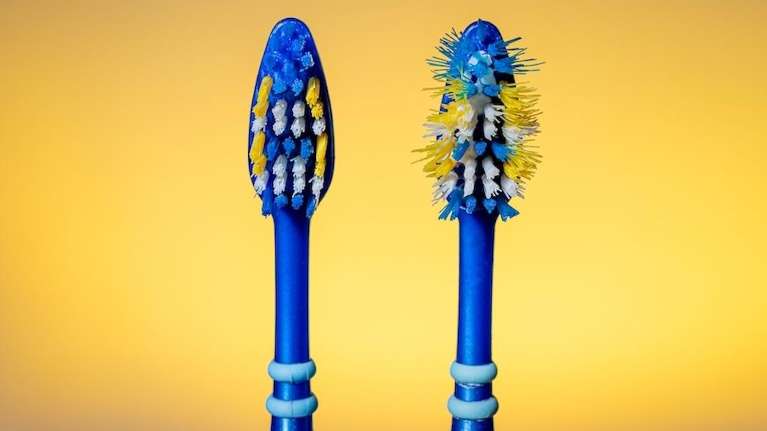
One of the most important things you can do to keep your teeth and gums healthy is to floss them regularly. In fact, the American Dental Association recommends that you floss at least once a day. This is common knowledge, yet most people seem to have difficulty flossing on a regular basis. But the good news is that even if flossing has been a challenge for you in the past, it is never too late to start developing good habits! Read on to learn more about why you should floss in the first place, as well as some great ways to become a flossing
Do I really need to floss? What’s the big deal?

To get motivated to develop a new habit, it helps to understand why it’s important. When you eat, small food particles remain in your mouth and cause harmful bacteria to build up on your teeth. These bacteria join together to form a colorless, sticky film on your teeth called plaque. Proper flossing techniques remove the food particles and bacteria under your gums and between your teeth where your toothbrush can’t reach. It is estimated that the spaces between teeth and under the gums make up as much as 30-35% of your teeth’s surface area! So if you only brush and forget to floss, is like taking a shower without washing a third of your body.
The goal is to remove plaque before it has a chance to harden into tartar (sometimes called calculus). Tartar is a lot tougher than plaque and can only be removed by a dental hygienist or dentist. What’s so bad about tartar? Well, everyone knows that plaque can lead to cavities. But once plaque becomes tartar, it can do something even worse – it can cause irreversible loss of the bone around your teeth. If enough bone is lost, your teeth can become very loose, and can even fall out!
So how do you take the first steps so you can keep all of that from happening? It’s easy!
Tips for Getting Started

Decide which floss is right for you. There used to be only one option when it came to picking a dental floss. Not anymore! You can now choose from waxed, unwaxed, regular thickness, “comfort” thickness, slick, ridged, fluoridated, and even different flavors of floss. Other floss types include pre-threaded flossers (which have become popular), dental picks, little brushes thin enough to fit between teeth, and water flossers. The type of floss most beneficial for you will depend on several factors. You can experiment with different types on your own, but the easiest way to wade through all the variety out there is just to talk to us! Dr Bailey and our hygiene team will examine your teeth, discuss any difficulties you may be having and get you on the right track!

Placement is key. Keep your floss of choice in places where you’ll see it and where your mind will be triggered to use it. Store floss with your toothbrush and toothpaste. If you use the smaller, pre-threaded flossers, consider keeping a container of them on your bathroom counter or in your medicine cabinet where you can easily grab a new one when needed. Some of our patients even keep floss in their car or purse so they are never stuck with food between their teeth in important social situations. If an additional trigger or reminder becomes necessary, try a sticky note on your bathroom mirror.
Make flossing part of another activity that’s already a habit. Most of our patients prefer to floss at the same time that they brush their teeth. If that is something that works for you, it is usually best to floss first, then brush. But of it would be easier for you to combine flossing with a different activity such as watching TV, listening to music, or sitting down to mentally reflect on your day, then go for it! The most important thing is to find the activity that will help you stick with flossing. Once you’ve done that, it is much easier to do every day.

Don’t give up! When you first start flossing, your gums might bleed a little and even feel tender or sore. This is normal when you just starting, so don’t give up! After a few weeks of flossing daily, the bleeding should stop. If it doesn’t, there may be a more serious issue involved, and you should schedule a dental evaluation.
If you can’t floss every day, aim for three days a week and then work your way up from there. You don’t have to be a perfect flosser for your teeth and gums to benefit. A small, consistent effort can lead to a long-term flossing habit, and your smile will thank you for it!
Finally, make sure you get regular checkups, including a professional dental cleaning and fluoride treatment. Contact us to schedule a convenient appointment! Dr. Bailey and the North River Dental Care team look forward to taking care of you and your smile!






